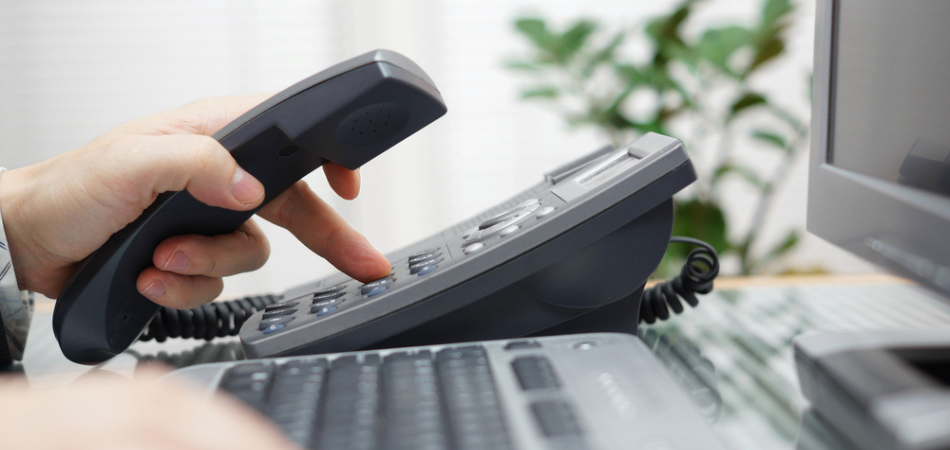Struggling with addiction or experiencing dips in your mental health can make you feel incredibly isolated and weak. However, it’s important to remember that these moments are fleeting, especially considering the abundance of help at your disposal.

What are helplines and hotlines?
Helplines and hotlines are dedicated phone services designed to provide immediate assistance, information, and support to any individual in crisis or need. These services are typically staffed by trained professionals and volunteers who can offer guidance, emotional support, and referrals to additional resources. For those struggling with addiction, helplines and outlines are vital tools for accessing the help people need and the encouragement to begin their journey towards recovery.
Helplines and hotlines
Addiction
- Alcoholics Anonymous (Alcohol)
0800 917 7650 - Alcohol Change UK (Alcohol)
0203 907 8480 - FRANK (Drugs and alcohol)
0300 123 6600 - Turning Point (Drugs and alcohol)
0330 303 6000 - Club Drug Clinic (NHS service)
0203 317 3000 - Narcotics Anonymous (Drugs)
0300 999 1212 - Cocaine Anonymous (Cocaine)
0800 612 0225 - Release (Drugs)
0207 324 2989
Mental health
- Samaritans
116 123 - SANEline
0300 304 7000 - National Suicide Prevention UK
0800 689 5652 - CALM
0800 58 58 58
LGBT+ specialised helplines
- Switchboard
0300 330 0630 - LGBT Foundation
0345 330 3030
Helplines for families
- Al-Anon
0800 0086 811 - Families Anonymous
0207 4984 680 - Nacoa
0800 358 3456
Private referrals
- UK Rehab
0203 8115 619
Additional resources:
- Change Grow Live: You can find information and local support for alcohol and drug use
- London Friend: Offering addiction and mental health support for those within the LGBT+ community in the form of support groups and counselling.
- We Are With You: Offer support for drug, alcohol or mental health problems
- Adfam: Information and support regarding drug or alcohol concerns in a loved one

How do helplines and hotlines work?
Helplines and hotline services are designed to provide timely assistance and connect callers with the resources they need to begin their recovery journey. Here’s a closer look at how they typically work:
Confidentiality
Most helplines and hotlines ensure the confidentiality of your call. This means that the details of your conversation are kept private, which creates a safe and trusting environment where you can openly discuss sensitive issues without fear of judgement or breach of privacy. This confidentiality is crucial in encouraging individuals to seek help and share their struggles honestly.
24/7 availability
Many helplines operate around the clock, providing support whenever it’s needed, regardless of the time of day or night. This 24/7 availability ensures that help is always accessible, which is particularly important during moments of crisis when immediate assistance can make a significant difference. (It’s best to check the timings of each hotline/resource as opening times may apply)
Trained staff
Calls to helplines and hotlines are handled by trained professionals and volunteers specialising in crisis intervention and addiction support. These individuals have the skills to provide compassionate listening, practical advice, and emotional support. They can answer questions, offer guidance, and help callers navigate through their immediate crises.
Referrals and resources
One of the key functions of helplines is to connect callers with additional support services. Staff can provide referrals to local treatment facilities, support groups, counselling services, and other relevant resources. These referrals are tailored to the caller’s needs, ensuring they receive the most appropriate and effective help.
Support and counselling
Beyond immediate crisis intervention, many helplines offer ongoing emotional support and counselling. This can include follow-up calls, continuous support sessions, and access to long-term counselling services. This ongoing support helps individuals maintain their progress and stay committed to their recovery journey, providing a steady source of encouragement and guidance.
Additional services:
Some helplines may offer additional services such as:
- Educational materials: Information about addiction, treatment options, and coping strategies.
- Advocacy: Support in navigating healthcare systems and accessing necessary services.
- Family support: Resources and counselling for family members affected by a loved one’s addiction.
The value of helplines and hotlines
Helplines and hotlines provide an indispensable lifeline for individuals facing addiction and mental health challenges. Their immediate accessibility ensures that support is available at critical moments, offering a safe, confidential space for individuals to seek help without fear of judgement. Staffed by trained professionals, helplines offer compassionate listening, expert guidance, and practical assistance, helping callers navigate crises and connect with essential resources
Seeking help
Taking the first step towards recovery can be daunting, often filled with uncertainty and fear of the unknown. However, addiction helplines offer an invaluable lifeline to those in need, providing immediate and compassionate support to guide you through these challenging times. Whether you need someone to talk to, information about treatment options, or immediate crisis intervention, these helplines and trained professionals are ready to listen without judgement and connect you with the right resources for you.
These services are not just about crisis management; they are about empowering you to take control of your recovery journey. Remember, you are not alone in this battle. Support is just a phone call away to help you find the strength and resources you need to reclaim your life and move towards a healthier, happier future.
Call our admissions line 24 hours a day to get help.



